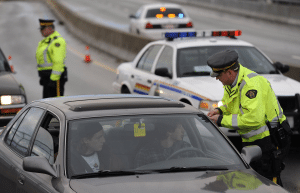What are the worst areas in Sydney for drink driving?
In NSW alone police have conducted over 6.5 MILLION random breath tests since January 2014. Of that 22,000 people were charged with drink-driving. That means that approximately 1 out of every 285 drivers tested positive for drink-driving (Source: Sydney Morning Herald).
With all that we know about the risks, people are unfortunately still drink-driving. In 2015 there were 46 crashes with 50 fatalities. Although Sydney’s northern beaches and the stretch northward along the coast is well known as the “drink-driver belt,” the Tweed/Byron area is also reported as one of the worst areas in NSW for drink and drug driving. During ‘Operation Mega Drive 2’ last month, officers conducted 2,599 random breath tests in the area with 19 drivers charged with drink driving. It is also ranked number one in the state for alcohol related crashes with “an average of seven fatal crashes in the command every year” (Source: NSW Police Force).
“Despite the death toll on our roads of 357 and numerous warnings about drink and drug-driving,” Assistant Commissioner Michael Corboy of the State’s Traffic and Highway Patrol Command said he was “dumbfounded” by how many drivers were caught impaired during the operation.
According to NRMA and Centre for Road Safety, road fatalities have risen steadily from 31 in 2013 to 41 in 2015.
From the St. George area up to Sydney’s Northern Beaches, over 5,700 charges were laid this time last year in NSW’s ten worst drink-driving locations from January 2014 through to February 2015. According to Business Insider these areas included:
- The Northern Beaches with 759 charged.
- The Tweed/Byron area with 753 charged.
- The Coffs/Clarence area with 672 charged.
- Richmond with 657 charged.
- Brisbane Waters with 546 charged.
- Newcastle City with 545 charged.
- Lake Macquarie with 511 charged.
- Lake Illawarra with 460 charged.
- The Mid North Coast with 454 charged.
- The St George area with 431 charged.
Since the start of random breath testing in 1982, road deaths per 100,000 population have dropped from about 23 to 4.1 in 2014, according to Transport for NSW Centre for Road Safety. But according to analysis conducted by independent motoring services organisation, NRMA and Centre for Road Safety has concluded that “road fatalities have jumped dramatically.” During this year’s holiday season there were 7 road fatalities in NSW – more than half of all the other Australian states combined.
Road safety blitzes like Operation Saturation and Operation Mega Drive are effective at reducing the number of serious injury and fatal crashes on NSW roads. For example the number dropped from 692 during in 2014 to 431 for the same time period in 2015, according to Traffic and Highway Patrol Commander, Assistant Commissioner John Hartley. Regardless of this decline, any loss of life or serious injury due to drink-driving is unacceptable.
Drink-Driving Facts
In NSW the allowable BAC limit is 0.05, anything over that is illegal. Learners and probationary license-holders must have a 0.00 BAC. According to Drinkwise Australia a BAC of 0.08 leaves you 7 times more likely to be involved in an accident and a BAC of 0.15 leaves you 25 times more likely to be in an accident.
According to Transport for NSW’s Centre for Road Safety, NSW police have the power to:
- Stop drivers at random to test for alcohol
- Arrest drivers who test over the legal limit
- Require a driver to take a sobriety test in certain circumstances
- Breath test any driver or supervising driver involved in a crash
The repercussions of being charged for drink-driving are quite far reaching and can include suspension and disqualification of your licence, heavy fines and even gaol time, which can have an impact on not only their licence but also a person’s family and livelihood. Penalties for drink driving are determined by many factors including the prescribed concentration of alcohol (PCA), whether it is a first or subsequent offence, as well as a person’s general traffic history.
If you, or anyone you know, have been arrested and charged with a drink driving do you know what your options are? If you are looking for expert legal advice call us at our 24/7 hotline at 1-300-595-299.







